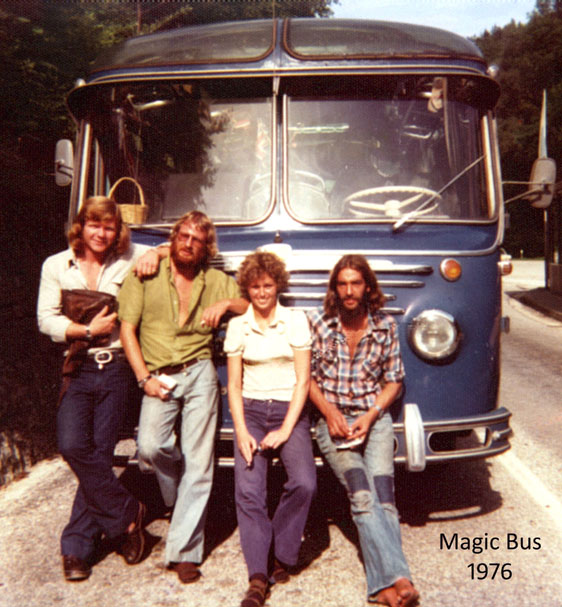Diane was barely twenty-one when she began her adventure. Raised in a middle-class family in Colorado, she felt lucky to be attending Stanford University as a pre-med student. However, by her Junior year she realized she didn’t want to be a surgeon as she had always thought. Suddenly unsure what she wanted to do with her life, Diane was determined to travel while she figured it out. Stanford offered a study abroad program than included transportation so Diane traveled to Florence, Italy, to complete her final term.
Diane told me of her disillusionment with the state of the world in the mid-70s. She was deeply affected by the murders of Martin Luther King, Robert Kennedy Jr. and the Nixon debacle. It seemed that nobody in leadership knew what to do. Inspired by James Michener’s novel, The Drifters, Diane decided she needed to figure it out for herself by seeing the world.
Starting in Italy right after graduation, she began her travels. A Stanford/Hewlett Packard connection in Singapore offered a possible job. She also had friends in Greece and India. These connections gave her a rough itinerary.

After visiting her friend in Greece, Diane headed for Istanbul, the starting point of most overland journeys. The Turkish city was a hub for young travelers who shared information and travel tips. There she learned about the Magic Bus, a transportation company that offered no-frills, cheap, rapid, and direct transportation to India. The other passengers turned out to be mainly drug-influenced hippies, and Diane soon realized she was uncomfortable traveling with this group. In Erzurum, a city in the middle of the great expanses of Eastern Turkey, Diane left the bus accompanied by a young man who was also uneasy with the other Magic Bus travelers. These two continued together for several weeks, but split when they arrived in Tehran.
Diane says she was surprised to find she fared better as a single woman traveling alone. She told me that the Middle-Eastern male perspective seemed to deduce that any woman who traveled with a male companion not her family or husband was sexually promiscuous. She experienced unwanted touching, rude remarks, and attempts to get her alone. Later when she traveled through eastern Iran and Afghanistan on her own, she felt she was viewed with awe, respect, even fear. “They treated me like a goddess,” she said.
Being a lone, woman traveler who hitchhiked, walked, and took local buses certainly exposed her to unbelievable experiences. It invited interaction with local people on a more intimate level than Tom and I could dream of when traveling in our own vehicle. As she walked from the Iran/Afghanistan border to Herat, Diane met a teacher who spoke English and took her under his wing. Soon she found herself working as the English tutor for the four daughters of an important local business man. She spent a month in Herat, teaching, living in the women’s world “behind the walls,” and walking freely about the city. Later, Diane met an American woman living in Kabul who raised Arabian horses. Her new friend invited her to come along on a horse-back riding trip into the Peshawar Valley.
Diane continued by public bus across the Khyber Pass, through Pakistan, and into India. In Delhi, she met up with the relatives of a Sikh engineer she had known in Denver. Her days in Northern India were a delight, mainly due to the exceptional hospitality of this man’s family. They took her to see all the major sights and introduced her to the Sikh culture. Later, she traveled on her own to Southern India where she studied yoga under a well-known yoga master.

Having heard of its druggie reputation, Diane avoided Goa. Still, like Tom and me, the theft of personal documents brought her idyllic stay in Southern India to an end. “A blond, German woman stole my passport and all my money,” she said. “Amazingly, the villagers where I was staying took a collection to buy me a train ticket to Delhi.” As soon as she had her replacement passport, she headed home.
Diane’s experiences, some distressing and others unbelievably wonderful, changed her life. Like many other overland travelers, she returned with a heightened appreciation and acceptance of other people regardless of race, religion, health condition, or social status.
One of the most life-changing results of Diane’s year and a half adventure was that she could now let go of previous plans and simply let her life unfold. This was the understanding that she had set out to find.
Sign up to receive the latest news, events and personal insights from Katie Lang‑Slattery.
Leave a Reply